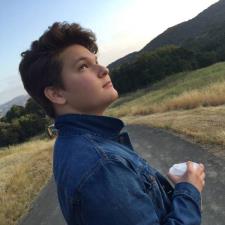
Cameron C. answered • 12/03/19
A passionate creative dedicated to the arts.
I think the most important parts of a narrative are structure, theme, character, and conflict.
CHARACTER:
Every story is about a character, who in some way wants something, but can't have it because some sort of conflict (either external or internal) is standing in the way. Apply this to any story, and I guarantee it will fit this formula.
CONFLICT:
My creative writing teacher once said "There are no stories in Heaven." I agree, because story is all about conflict. As previously stated, all stories are about this single idea, and if you have a story where a character wants something and NOTHING stands in their way, or if they are too strong and nobody poses a threat, your story loses interest and drama. People love to wonder if they will succeed, people love to wonder what happens next. Without a conflict that has the ability to defeat your main character, you lose all drama.
CHARACTER:
Your characters need to be liked and understood even if they are a little mean. A big portion of getting audiences to like and understand your main character is through their problem and conflict. In Pixar's "Up", people love the main character despite him being a grumpy old man because he's fueled by the love of his wife who recently passed away, and her memory carries him forward. It's things like these that make people love your characters and hope for the best for them no matter how stubborn or angry they can become as they fight for their goals.
STRUCTURE:
Structure is one of the most important things. Your story needs direction, it needs a pace, and it needs to unfold in a way that makes sense, where A + B = C. Most stories begin with your character in their normal life, and suddenly something comes into their happiness and shatters it in some way. A loved one is kidnapped, the main character develops a sickness, monsters and aliens invade their hometown, etc. Then, they set off for the rest of the story to rescue their loved ones, or cure their own sickness, or to defeat the monsters terrorizing their village.
Then, for majority of their journey they will spend their time either gaining the means to overthrow their conflict and achieve their goals, or they continually make attempts, fail, and pick themselves back up to ultimately try again. This, in short is just the use of "ups and downs" and these failures and successes need to be seen as the skeleton of the story, or some sort of mile marker that makes the plot turn and progress in drastic ways.
Write your story in a way so that when they succeed, something tears them down, and when something tears them down, something picks them back up. You will create drama, emotion, and you will do a huge part in thinking our your narrative from a bird's eye view.
THEME:
Lastly, theme. This isn't to say that every story needs a "moral" where the writer is telling his or her audience to not do drugs and to support your country, and all of that. What I mean is, you need to understand what type of story you are telling and only write scenes that serve that idea and drive the plot forward. If you want to tell a story with a theme that revolves around "loving yourself", you wouldn't write a plot where the character tries desperately hard to get married, only to get married in the end and to never work on loving themselves. Instead, you should write a plot where they fail to get married, discover techniques and rituals and whatever means of self-love to seek happiness, and write a conclusion where they end up alone, yet happier than they could have ever been married. That is a story with theme and direction.
Of course, none of this is set in stone, and once these rules are mastered they are made to be broken. Happy writing!
Jennyrose G.
Thank you🥰🥰🥰🥰🥰04/22/21








Jennyrose G.
I like it04/22/21